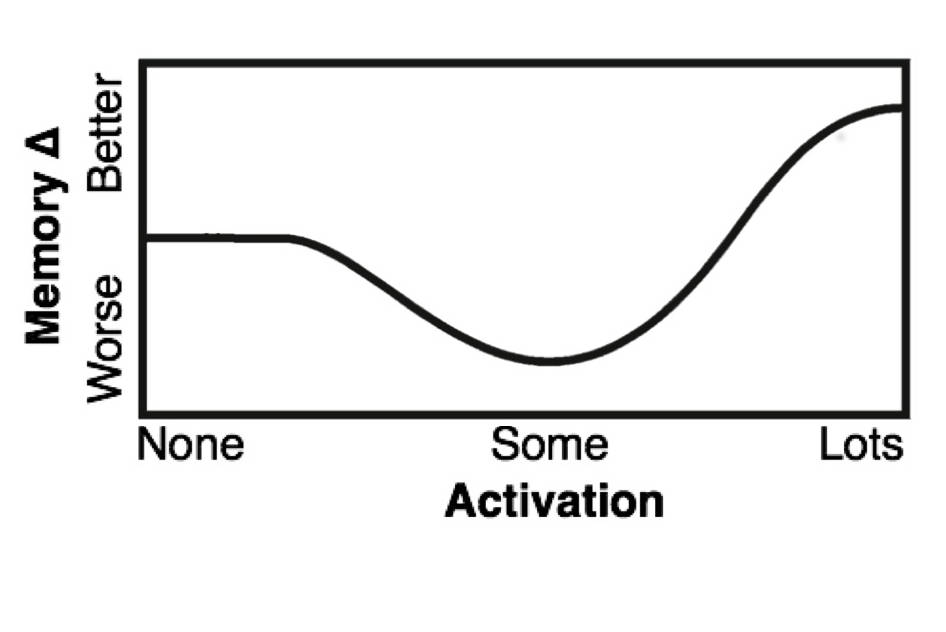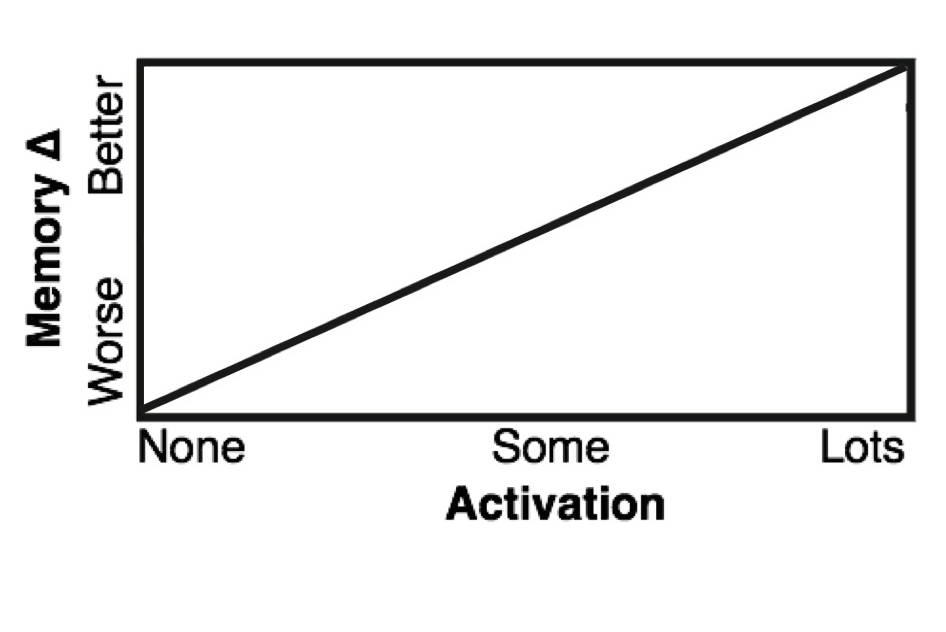think of a time when you accidentally learned an incorrect WORD definition. To use the word without confusion, you needed to both learn the correct meaning and unlearn the incorrect one. How did you do that?
We know memory gets weaker with time and intervening events, but it might take the wrong definition a long time to dissipate, during which it would interfere with your correct use of the word. Also, according to conventional views, memories are strengthened to the extent we reactivate them (hence, "practice makes perfect"). As each recall of the correct definition would slightly reactivate the incorrect definition (strengthening both), you might never get rid of the incorrect definition. But since you did, we likely have more active methods of memory weakening.
The POPMEM lab has contributed to exploration of the non-monotonic learning rule. Like conventional views, this posits that retrieving memories changes their strength, with strong reactivations strengthening memories. The non-monotonic rule differs, however, in its prediction that partially retrieving memories weakens memories. Our lab has contributed evidence that this rule applies to specific parts of memories, as would have been necessary for you to drop the incorrect word meaning while strengthing the correct one.
Having established support for the presence of this learning rule in human cognition, our laboratory is now focused on understanding how it operates "in the wild", and are posing questions such as:
- Where does non-monotonic learning appear in our lives?
- How do learning rules differ across individuals?
- Can we harness an understanding of non-monotonic learning for practical uses?
To learn more, we welcome you to visit our publications page, or view the key publications below.



